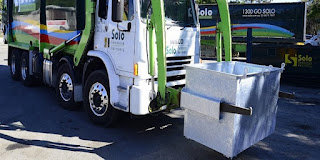Unveiling Hidden Hazards: E-Waste in Your Home
Introduction: In this era of rapid technological development, our houses are filled with various electronic devices, all of which have a purpose but frequently hide a threat: electronic rubbish, or e-waste. E-waste is the term used to describe abandoned electronic devices, such as outdated computers, outdated cell phones, and broken appliances. Even though these things might not seem dangerous in our homes, if they are not disposed of appropriately, they could cause environmental destruction.
The Quiet Danger Inside
Vintage
Cell Phones: Old cell phones
that are stashed in cabinets or drawers may appear innocuous. But if disposed
of incorrectly, these devices’ dangerous components-which include lithium-ion
batteries, lead, mercury, and cadmium- can contaminate soil and water.
Outdated
Computers and Laptops:
With the rapid advancement of technology, computers and laptops soon become
obsolete. However, hazardous materials like mercury, arsenic, and brominated
flame retardants are included in their constituent parts. These materials
represent a serious risk to the environment and public health when they leak
into landfills.
Televisions
and Monitors:
If damaged or allowed to deteriorate, leaded glass, which is a component of
cathode ray tube (CRT) televisions and monitors, poses a serious health hazard
to both people and animals.
Kitchen
Appliances: Kitchen appliances
frequently have electronic parts that make them e-waste including microwaves
and refrigerators. A large number of these appliances are made with dangerous
compounds like polychlorinated biphenyls (PCBs) and chlorofluorocarbons (CFCs),
which deplete the ozone layer.
The Imperative of E-Waste Recycling
Although there is no denying the risks
associated with e-waste recycling Adelaide, responsible recycling is the answer. To recycle
e-waste, electronic gadgets must be carefully disassembled to recover valuable
materials and dispose of dangerous parts safely. Here’s why recycling is
essential:
Environmental
Preservation:
You can reduce the possibility of dangerous materials seeping into the
environment by e-waste recycling in Adelaide. Recycling done right lowers
pollution, protects natural resources, and keeps ecosystems clean.
Resource
Recovery: Precious metals
including gold, silver, copper, and rare earth metals can be found in
electronic gadgets. Recycling these gadgets lowers the energy and environmental
costs related to mining and producing new materials, as well as the risk of
depleting finite resources.
Health Protection: Communities are
protected from the harmful health consequences of dangerous substances by
responsible e-waste recycling. E-waste recycling in Adelaide and Hazardous
waste disposal in Adelaide such as Adelaide Waste Recycling Centre (AWRC)
protect the environment and future generation’s safety by recycling the e-waste
and stopping the release of dangerous chemicals into the atmosphere.
How to Get Rid of E-waste Properly
Understand the Recycling Options in Your
Area: Numerous towns have e-waste recycling initiatives or specific sites for
drop-offs. Look for nearby recycling facilities or electronic stores that take
e-waste and dispose of it properly.
Data
Sanitisation:
Make sure that sensitive and personal information is safely erased from
electronic devices before discarding them. Use data erasure software or get
help from an expert to protect your privacy.
Battery
Disposal: Care must be taken
while disposing of batteries, particularly lithium-ion batteries, which are
prevalent in laptops and smartphones. To guarantee safe disposal, a lot of
stores and recycling facilities have specialised battery recycling
programmes.
Encourage
E-Waste Initiatives:
Put up legislation about e-waste and provide your support to programmes that
encourage ethical recycling methods. Urge products to consider lifetime and
recyclability while designing their products.
Embracing a Sustainable Future: To effectively address the e-waste challenge, people, companies and governments must work together. Through increasing consciousness, putting in place efficient recycling schemes, and giving priority to environmentally friendly design principles, you may lessen the hazards that e-waste poses to the environment and human health.
Conclusion
The fact that electronic devices are so common in contemporary homes emphasises how urgent it is to solve the e-waste problem. E-waste, which can range from old appliances to abandoned cell phones, is a subtle but dangerous threat to public health and the environment that exists in our homes. Nonetheless, you can turn the tide of e-waste from an impending catastrophe to a chance for environmentally conscious innovation and responsible collection action. Let’s set out to create a future where technological waste is a sign of our dedication to a healthy planet rather than a threat.
The proper disposal of any type of
hazardous waste has been given careful consideration by Australian authorities,
who have established several recommendations in this regard. To obtain services
concerning Hazardous waste disposal in Adelaide and e-waste recycling in
Adelaide, get in touch with the Adelaide Waste Recycling Centre (AWRC). With
years of deep experience in all aspects of waste management, the company is one
of Adelaide's most sought-after businesses for e-waste recycling services. Its
all-encompassing approach to Adelaide's hazardous
waste disposal Adelaide has also won recognition. Hazardous waste goods
such as batteries, chemicals, coolants, gas bottles, fire extinguishers,
fluorescent lights, oils, herbicides, paints, and pesticides are all accepted
by AWRC.
.jpg)




Comments
Post a Comment